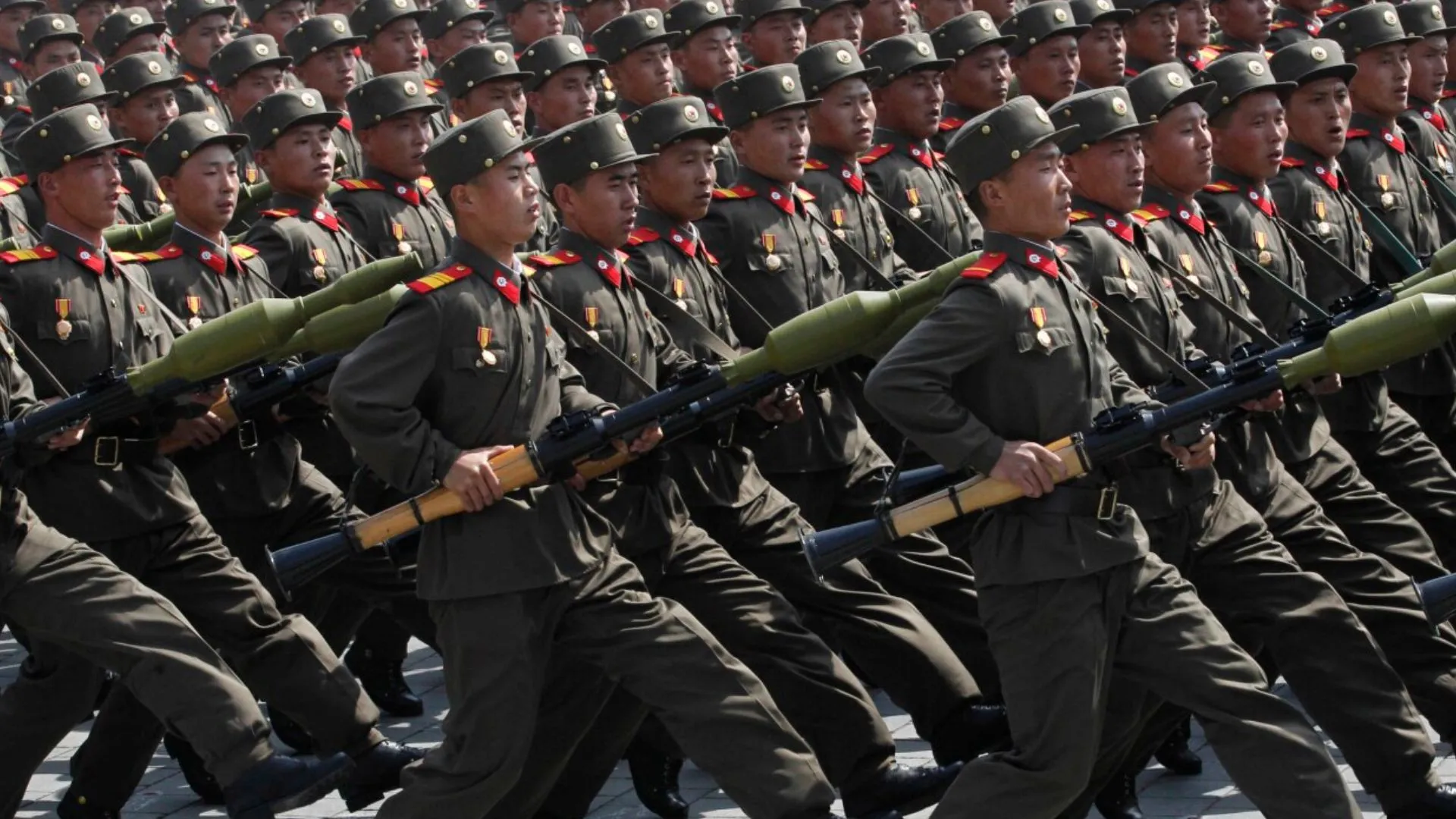North Korean troops have not been seen on the frontlines in Russia’s Kursk region for several weeks, according to a Ukrainian military official. The absence of these troops is believed to be due to significant casualties sustained during the conflict. Colonel Oleksandr Kindratenko, a spokesperson for Ukraine’s Special Operations Forces, stated that the North Korean soldiers were likely forced to withdraw after suffering heavy losses.
The deployment of North Korean troops to Kursk was part of a broader strategy by Russia to bolster its forces against Ukraine’s incursion into the southern Russian border region. Approximately 12,000 North Korean soldiers were sent to Russia, with reports indicating that around 4,000 of them have been killed or injured. The Ukrainian military has captured several North Korean soldiers, and some have reportedly detonated grenades rather than be taken alive.
Despite the heavy losses, North Korean troops have shown remarkable marksmanship and resilience on the battlefield. However, their lack of experience with modern combat technologies, such as drones, has made them vulnerable. The Ukrainian military has made significant advancements in the Kursk region, capturing several settlements and pushing back Russian forces.
The presence of North Korean troops in Russia was never officially acknowledged by Moscow or Pyongyang. However, the deployment was part of a landmark defense pact signed by North Korean leader Kim Jong Un and Russian President Vladimir Putin last year. This agreement, reminiscent of the Cold War-era mutual defense pledge, has been viewed as a significant escalation in the ongoing conflict.
The pact is the most significant agreement signed by Russia and North Korea in decades and has been seen as a revival of their historical alliance. The defense agreement pledged to provide immediate military assistance to each other in the event of an attack, marking a significant step in the relationship between the two nations.
CNN has previously reported on the brutal and near-suicidal tactics of North Korean soldiers, who in some cases have detonated grenades rather than be captured by Ukrainian forces. Some North Korean soldiers have written pledges of allegiance on the battlefield to North Korea’s Supreme Leader Kim Jong Un, demonstrating their dedication and resilience.
A commander with the 6th Special Operations Forces regiment, who did not want to give his name for security reasons, told CNN that while the North Korean soldiers are “all young, trained, hardy fighters,” they would have not previously faced drones in combat. “They are prepared for the realities of war in 1980 at best,” he said. Another battalion serviceman told CNN the North Koreans had shown good marksmanship when shooting down drones from about a 100-meter distance, suggesting a high level of training in North Korea.
However, Russia appears to be using the troops as foot soldiers, using them to carry out mass ground assaults despite major losses in Kursk. This has resulted in significant casualties among the North Korean troops, leading to their withdrawal from the frontlines.
Ukraine has recently made advancements in Kursk, according to a battlefield update from the Institute for the Study of War (ISW), a DC-based think-tank, on January 26. Meanwhile, the Russian Defense Ministry said earlier this week that Russian forces recaptured the Kursk region village of Nikolayevo-Daryino, which lies on the Russia-Ukraine border.
As the situation in Kursk continues to evolve, the withdrawal of North Korean troops highlights the brutal realities of modern warfare and the high human cost associated with it. The Ukrainian military remains vigilant, continuing to push back against Russian and allied forces in the region.
The absence of North Korean troops on the frontlines in Kursk marks a significant development in the ongoing conflict between Russia and Ukraine. The heavy losses sustained by the North Korean forces and their subsequent withdrawal underscore the challenges and complexities of modern warfare. As the conflict continues, the resilience and determination of the Ukrainian military remain crucial in pushing back against foreign forces and securing their territory.
ALSO READ: German Parliament Rejects Far-Right Supported Immigration Bill























